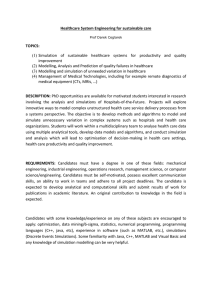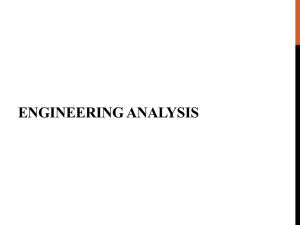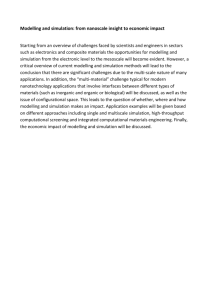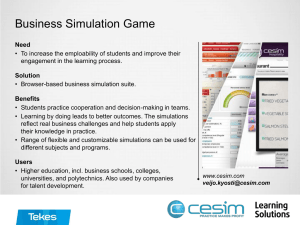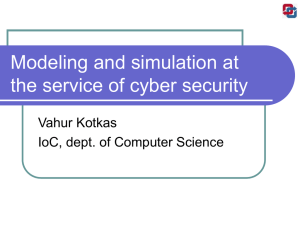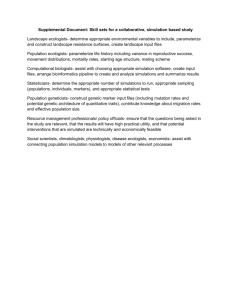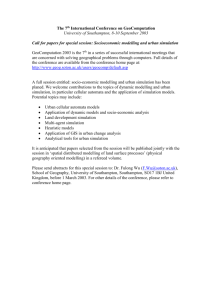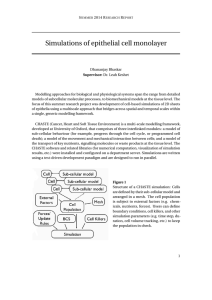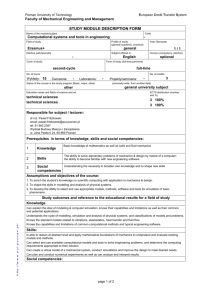High Value & Low Environmental Impact Manufacturing Systems
advertisement
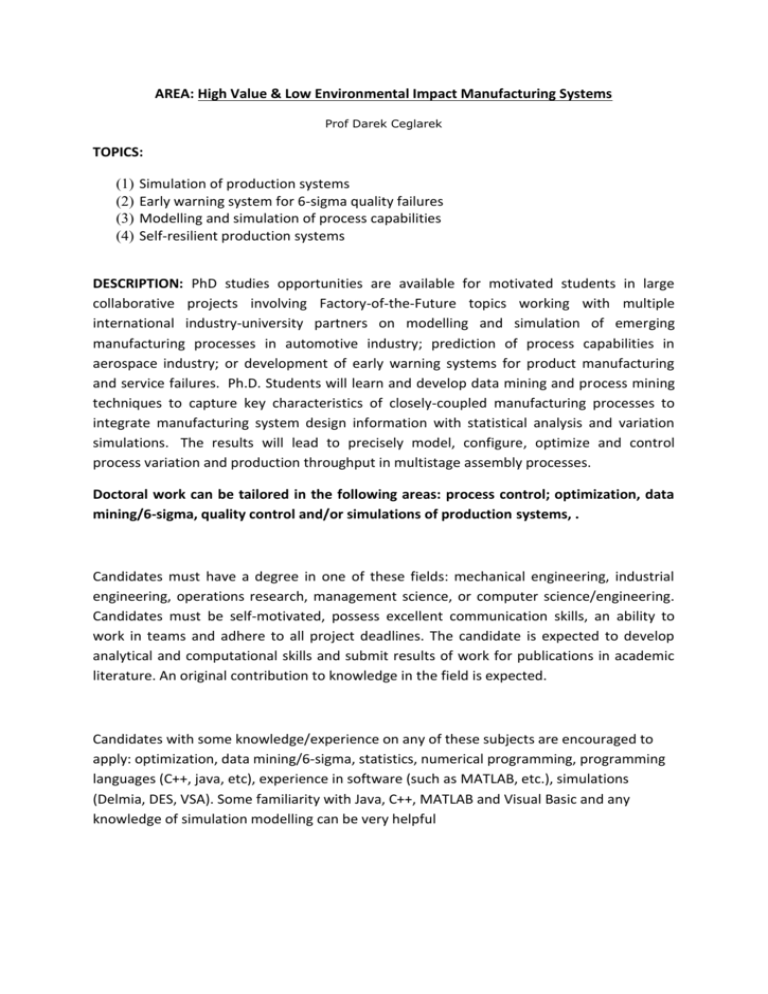
AREA: High Value & Low Environmental Impact Manufacturing Systems Prof Darek Ceglarek TOPICS: (1) (2) (3) (4) Simulation of production systems Early warning system for 6-sigma quality failures Modelling and simulation of process capabilities Self-resilient production systems DESCRIPTION: PhD studies opportunities are available for motivated students in large collaborative projects involving Factory-of-the-Future topics working with multiple international industry-university partners on modelling and simulation of emerging manufacturing processes in automotive industry; prediction of process capabilities in aerospace industry; or development of early warning systems for product manufacturing and service failures. Ph.D. Students will learn and develop data mining and process mining techniques to capture key characteristics of closely-coupled manufacturing processes to integrate manufacturing system design information with statistical analysis and variation simulations. The results will lead to precisely model, configure, optimize and control process variation and production throughput in multistage assembly processes. Doctoral work can be tailored in the following areas: process control; optimization, data mining/6-sigma, quality control and/or simulations of production systems, . Candidates must have a degree in one of these fields: mechanical engineering, industrial engineering, operations research, management science, or computer science/engineering. Candidates must be self-motivated, possess excellent communication skills, an ability to work in teams and adhere to all project deadlines. The candidate is expected to develop analytical and computational skills and submit results of work for publications in academic literature. An original contribution to knowledge in the field is expected. Candidates with some knowledge/experience on any of these subjects are encouraged to apply: optimization, data mining/6-sigma, statistics, numerical programming, programming languages (C++, java, etc), experience in software (such as MATLAB, etc.), simulations (Delmia, DES, VSA). Some familiarity with Java, C++, MATLAB and Visual Basic and any knowledge of simulation modelling can be very helpful
